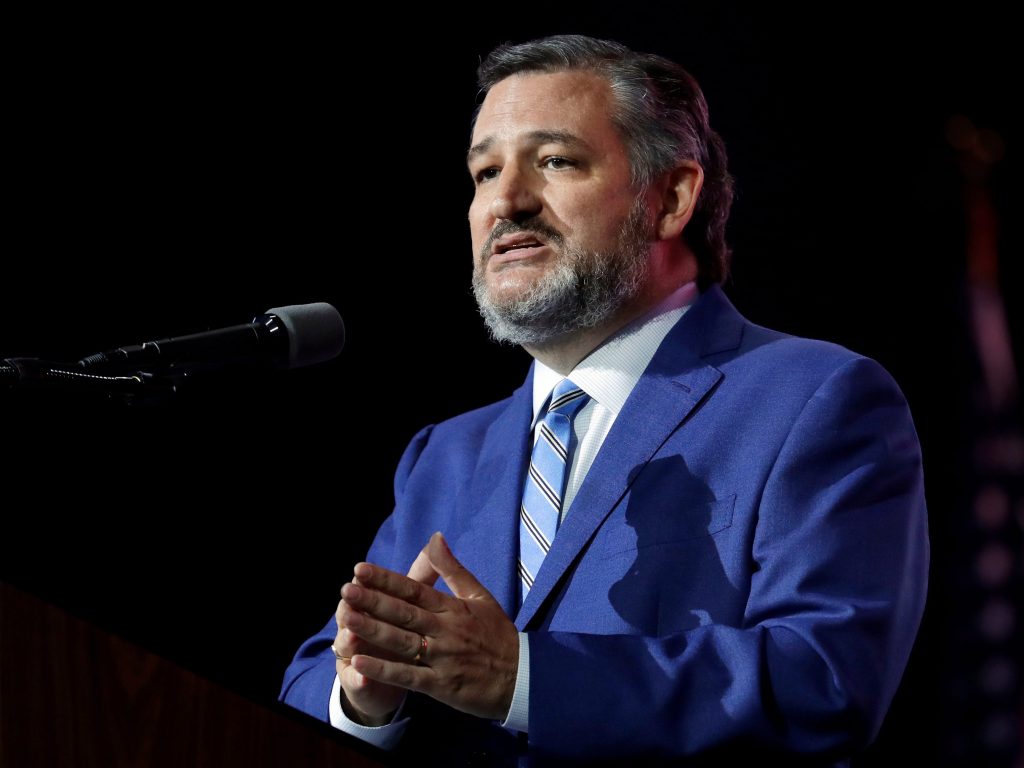- Ted Cruz said student-loan forgiveness will benefit the "slacker barista" who got a "useless" degree.
- A White House economist pushed back, emphasizing how the relief is going to Pell Grant recipients.
- "These are typically people from lower-income families—often first-gen college students—trying to get a degree," he said.
President Joe Biden's White House isn't letting criticism of its recent student-loan forgiveness announcement slide.
Last week, Biden announced up to $20,000 in student-loan forgiveness for Pell Grant recipients making under $125,000 a year, and $10,000 in relief for other federal borrowers under the same income cap.
As expected, a slew of opinions on the relief rolled in from lawmakers on both sides of the aisle — many Democrats lauded the relief and some pushed for more, while Republicans sharply criticized the broad debt cancellation, saying it's unfair and costly.
GOP Sen. Ted Cruz of Texas was no exception. On Friday, he didn't hold back on the debt relief on his podcast, saying that if you're "that slacker barista who wasted seven years in college studying completely useless things, now has loans and can't get a job, Joe Biden just gave you 20 grand."
"Like, holy cow! 20 grand. You know, maybe you weren't gonna vote in November, and suddenly you just got 20 grand," he added. "And you know, if you can get off the bong for a minute and head down to the voting station, or just send in your mail-in ballot that the Democrats have helpfully sent you, it could drive up turnout, particularly among young people."
Some Democratic lawmakers have also acknowledged that student-debt relief will help their party at the polls — but there's sharp disagreement when it comes down to the population that benefits most from the relief. National Economic Council Deputy Director Bharat Ramamurti has taken to Twitter over the past few days to explain elements of Biden's announcement. Over the weekend, he zeroed in on the Pell Grant recipients that could get up to $20,000 in loan forgiveness.
Per Ramamurti, nearly all Pell borrowers come from families making under $60,000 a year and 98% make under $100,000 a year, and those with the highest incomes are likelier to default than non-Pell borrowers with the lowest incomes.
"This is why it's galling to hear many refer to borrowers as slackers," Ramamurti wrote on Twitter. "These are typically people from lower-income families—often first-gen college students—trying to get a degree, and then using their income to help their families as well as pay down their own debt. Slackers?"
—Bharat Ramamurti (@BharatRamamurti) August 27, 2022
Democratic lawmakers have also responded to Republican lawmakers' criticisms of the relief. After Senate Minority Leader Mitch McConnell called it "astonishingly unfair," Massachusetts Sen. Elizabeth Warren pointed out that when McConnell graduated from University of Louisville, he was paying $330 in tuition. Despite the debate around loan forgiveness, the White House has maintained that those eligible will receive relief before student-loan payments resume in January.
